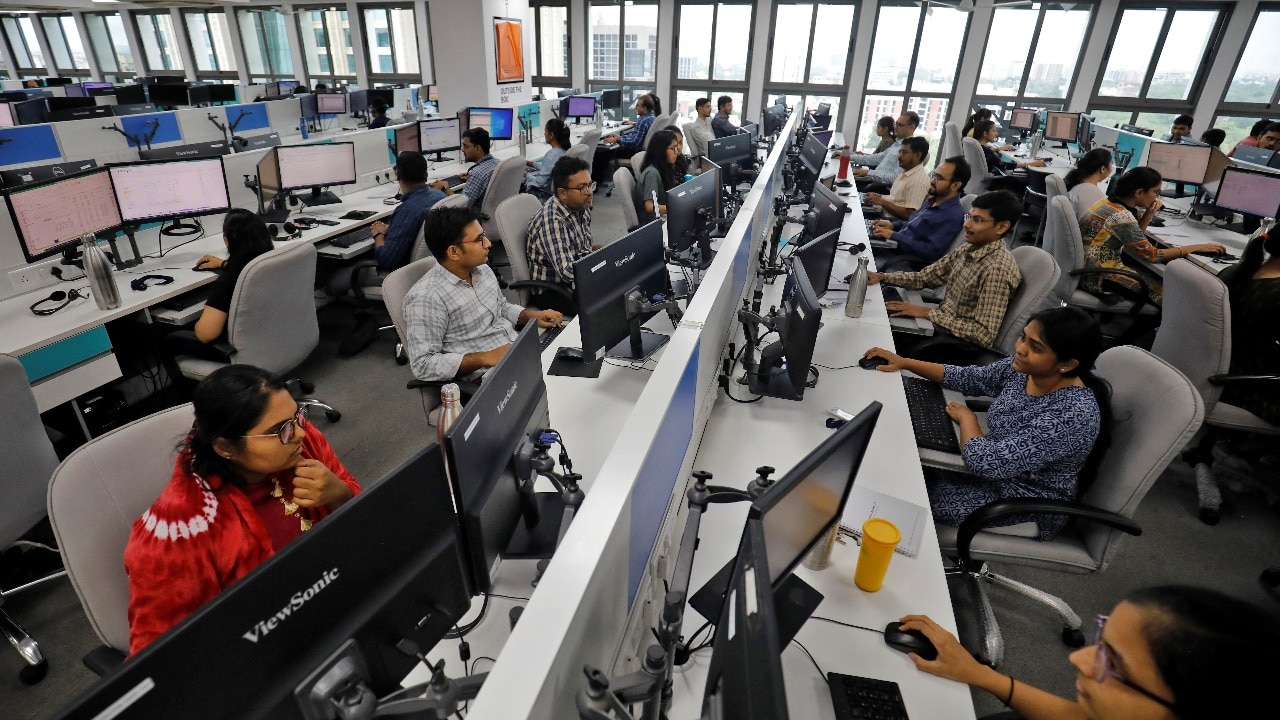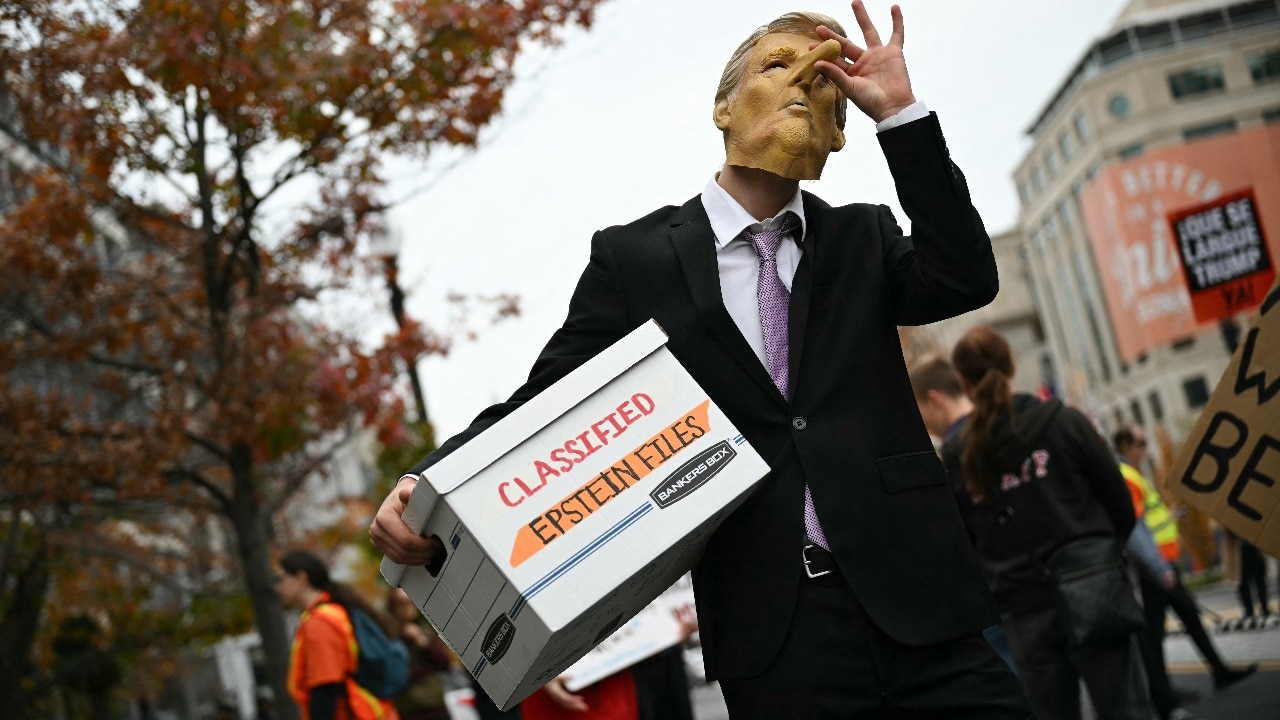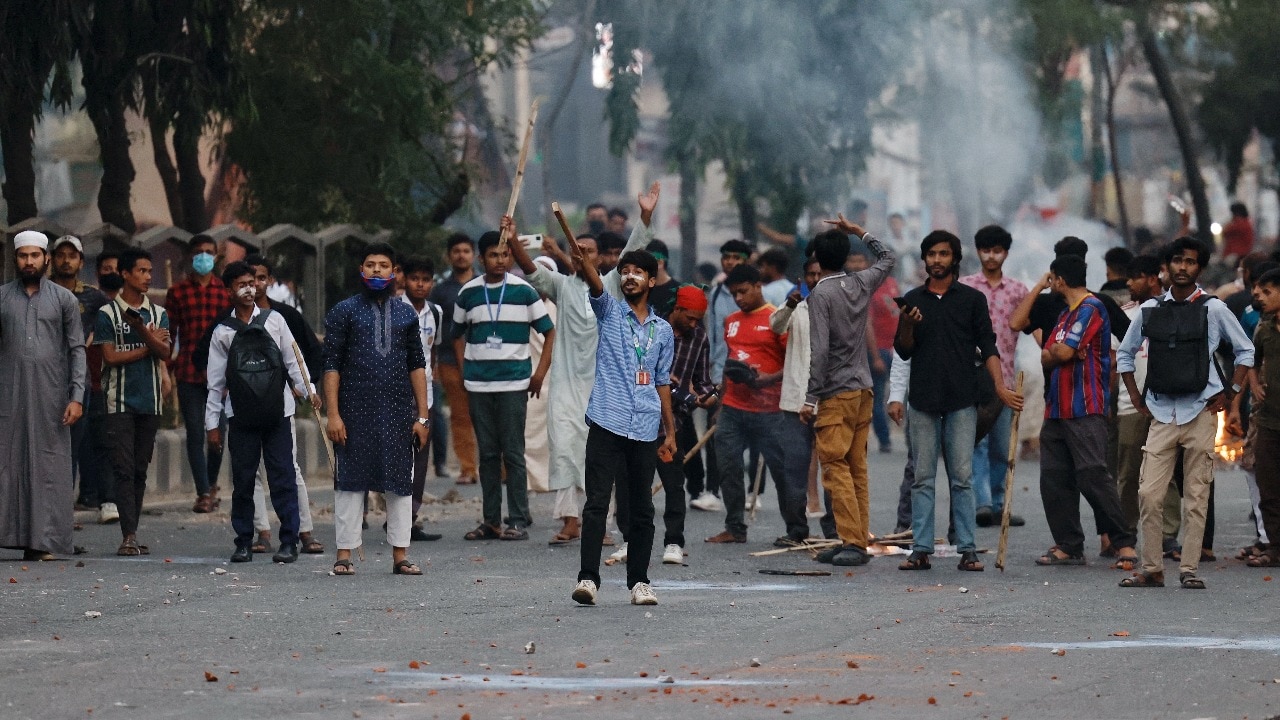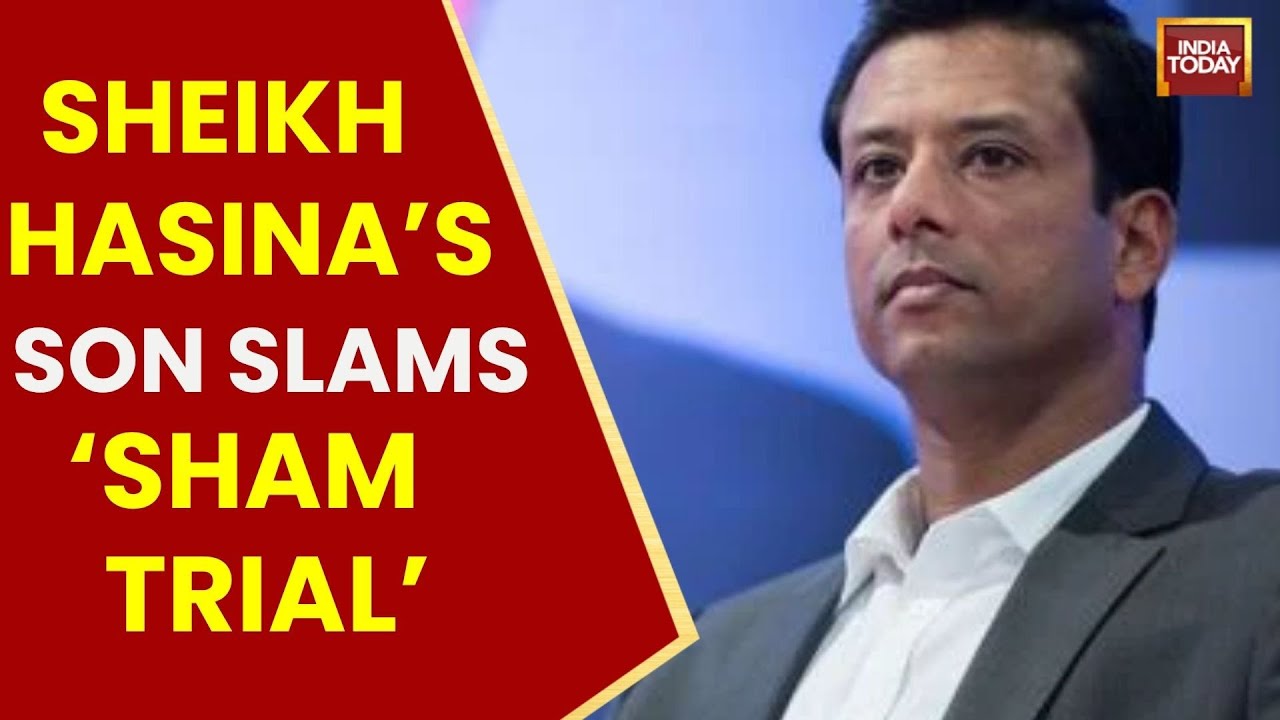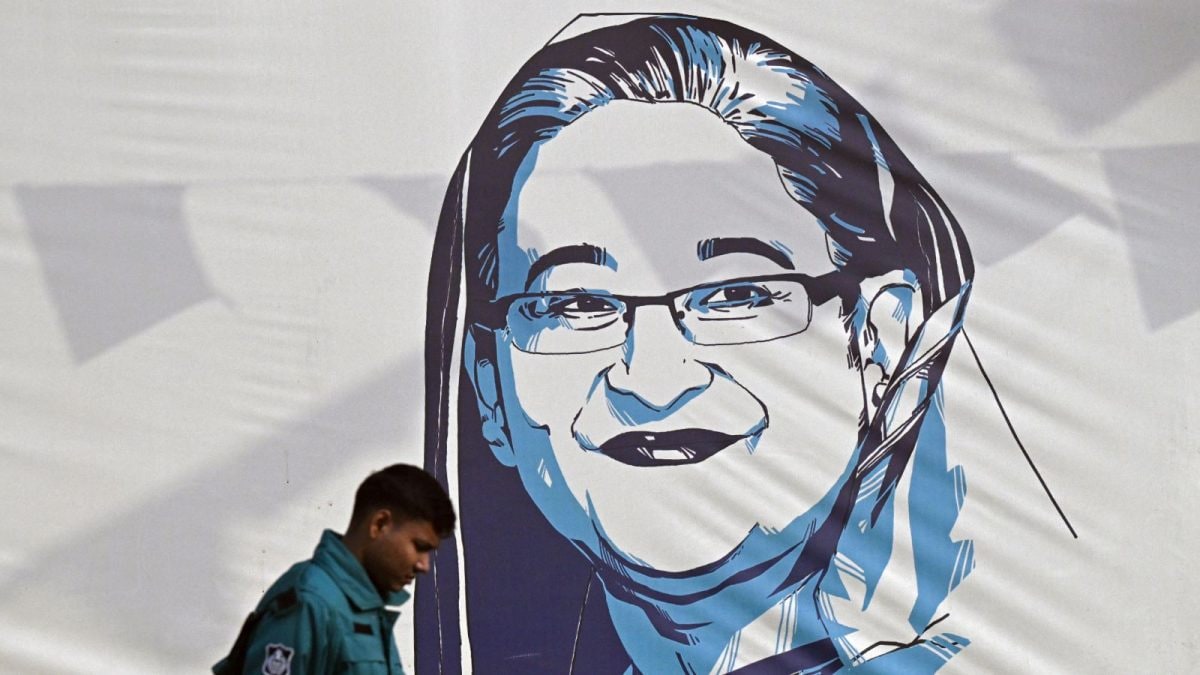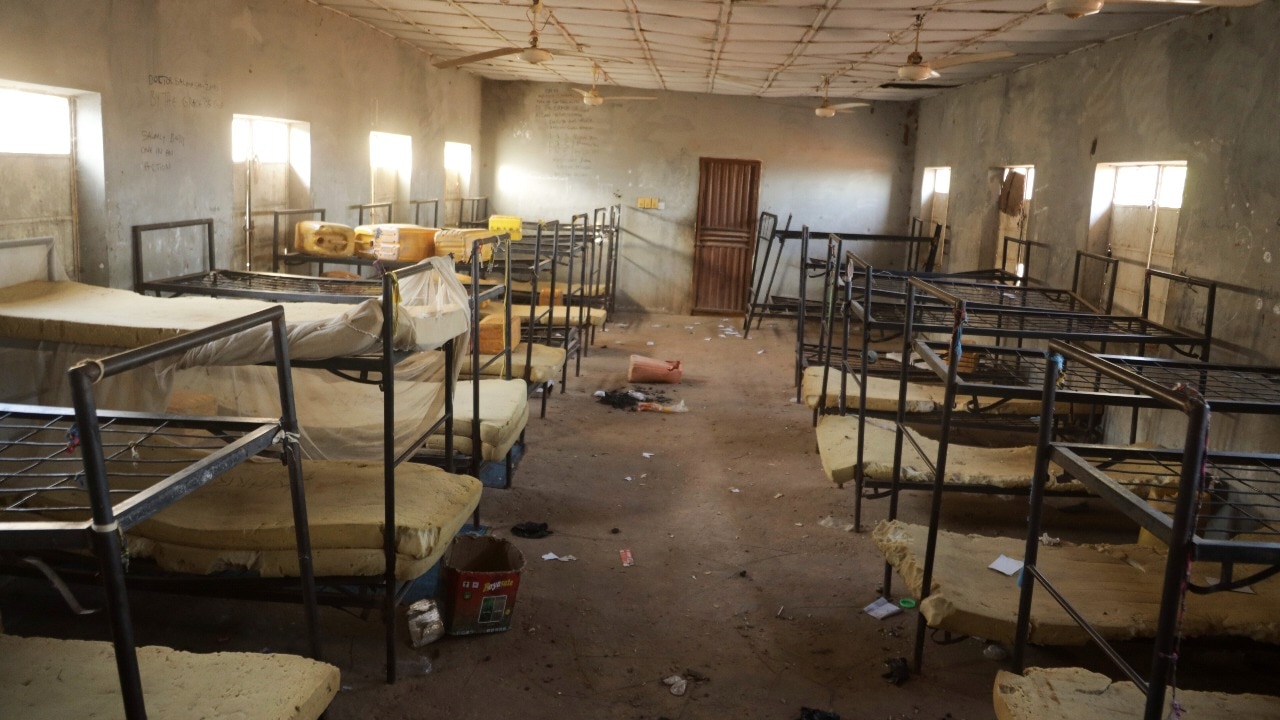Last Updated:October 03, 2025, 10:40 IST
It’s been two days since the US government shut down. With no resolution in sight, thousands of federal workers could soon see their pay and roles frozen

Two days have passed since the United States government entered its first shutdown in nearly seven years. (REUTERS)
Two days have passed since the United States government entered its first shutdown in nearly seven years. Triggered by a political impasse over enhanced Obamacare subsidies, the shutdown reflects a deepening budget standoff between President Donald Trump’s administration and Senate Democrats. As lawmakers fail to reach an agreement, hundreds of thousands of federal employees find themselves facing an uncertain workweek, with large-scale furloughs beginning to take shape across key departments.
What Is A Government Shutdown?
A “government shutdown" refers to the closure of non-essential federal services when Congress fails to approve the budget needed to run them. While emergency and essential services such as border patrol and air traffic control continue, large swathes of the bureaucracy are paused, sending employees home without pay, halting programs, and delaying payments.
But what does this mean in concrete terms for jobs? Which agencies are hit the hardest? And who decides which employees stay and which must leave? Here’s a detailed breakdown.
What Is A Furlough And Does It Mean Losing Your Job?
In the US federal system, a shutdown leads to one of two outcomes for employees: they are either deemed “essential" and required to work (sometimes without pay until a deal is reached), or they are “furloughed." Furloughs are essentially unpaid, forced leaves. Workers are asked to stay home, stop working, and wait. But this doesn’t mean they’ve been fired.
Furloughs are a temporary mechanism used to reduce the financial burden on the government while preserving the option to recall employees when funds are restored. Once Congress passes a budget and the shutdown ends, furloughed employees are typically brought back and may receive back pay, but that, too, depends on Congressional approval.
Which Departments Are Facing The Heaviest Furloughs?
While the White House has compiled a list of agencies likely to face cuts, layoffs or furloughs have not yet been formally confirmed and may vary depending on how long the shutdown lasts. According to CNN, the Trump administration has said that thousands of layoffs could begin to be announced shortly.
However, publicly posted agency contingency plans, some of which date back to March 2025, provide an indication of how severely different departments may be affected. These figures, compiled by The New York Times, show the potential scope of furloughs across key departments:
The Environmental Protection Agency (EPA) could furlough approximately 13,432 of its 15,166 staff, nearly 89 per cent.The Department of Education may suspend operations for 2,117 of its 2,447 employees, or about 87 per cent.The Department of Commerce is projected to furlough around 34,711 of 42,984 employees, over 80 per cent.The Department of Labor may furlough 9,775 out of 12,916 employees (about 76 per cent).The State Department, which oversees foreign affairs, could furlough 16,651 of its 26,995 staff (roughly 62 per cent).The Department of Defense’s civilian workforce could see 334,904 out of 741,477 employees affected, around 45 per cent, though uniformed personnel remain on duty.These numbers are projections based on pre-existing contingency plans, not confirmed furlough actions, and could change if a funding deal is reached or certain functions are reclassified as essential.
Are Healthcare And Social Services Also Affected?
Yes, though the level of impact varies. The Department of Health and Human Services (HHS), which oversees crucial public health operations including the Centres for Disease Control and Prevention (CDC) and the Food and Drug Administration (FDA), is expected to furlough around 32,460 of its 79,717 employees, or roughly 41 per cent.
Meanwhile the Social Security Administration, responsible for retirement, disability, and survivor benefits for millions of Americans, has a relatively lower furlough rate. Out of 51,825 employees, around 6,197 (roughly 12 per cent) are projected to be affected, suggesting a partial continuation of services.
What About Homeland Security, Justice And Veterans Services?
Departments handling national security, law enforcement, and veterans’ services are typically classified as essential and therefore expected to function with minimal furloughs, even during a shutdown.
For instance, the Department of Homeland Security, which includes the Secret Service, Immigration and Customs Enforcement (ICE), and the Coast Guard, is projected to furlough only around 14,184 employees from its vast 271,927 workforce, a mere 5 per cent.
The Department of Justice, too, will remain largely operational. Of its 115,131 staff, about 12,840, or 11 per cent, are projected to be furloughed.
The Department of Veterans Affairs, which runs healthcare and support programmes for former military personnel, will likely see the smallest disruption among major agencies. Only 14,874 of its 461,499 staff (just 3 per cent) are expected to be affected.
How Are Smaller Agencies Like The SBA And OPM Faring?
While major federal departments are in the spotlight during a government shutdown, smaller agencies that serve crucial administrative and economic functions also face disruptions, often with a disproportionate impact relative to their size.
The Small Business Administration (SBA), which provides loans, grants, and disaster assistance to entrepreneurs, may furlough about 1,456 out of its 6,201 employees, or nearly 23 per cent of its workforce. This could delay services such as loan approvals, small business certifications, and technical assistance to enterprises trying to recover from economic disruptions.
The Office of Personnel Management (OPM), which acts as the federal government’s human resources arm, will also take a hit. Of its roughly 2,007 employees, about 210 (approximately 10 per cent) may be furloughed. That could potentially slow down recruitment processes, payroll management, retirement benefits administration, and other personnel-related services across the entire federal bureaucracy.
Will Federal Workers Receive Back Pay?
Historically, furloughed federal workers have received back pay once the shutdown ends and Congress authorises reimbursement. However, this is not automatic. Every shutdown is different, and whether or not employees are paid retroactively depends on political negotiations once a funding bill is passed.
During the longest shutdown in US history, which lasted 35 days between December 2018 and January 2019, Congress did approve back pay. But in the current climate of budget standoffs and growing partisan gridlock, nothing is guaranteed yet.
When Could The Shutdown End?
The deadlock does not appear to be easing. According to CNN, Senate Democrats are expected to block a short-term GOP-backed funding bill in the next vote, while the Senate will not be in session over the weekend. This suggests the shutdown could extend further into the week.
Federal workers are already bracing for impact, and agencies have begun preparing for prolonged disruption. For many employees, especially those in lower-income roles or with families to support, the uncertainty around paycheques could have real financial consequences, even if their jobs are eventually restored.

Karishma Jain, Chief Sub Editor at News18.com, writes and edits opinion pieces on a variety of subjects, including Indian politics and policy, culture and the arts, technology and social change. Follow her @kar...Read More
Karishma Jain, Chief Sub Editor at News18.com, writes and edits opinion pieces on a variety of subjects, including Indian politics and policy, culture and the arts, technology and social change. Follow her @kar...
Read More
First Published:
October 03, 2025, 10:35 IST
News explainers US Government Shutdown Fallout: Which Jobs Are Hit And Who Gets Paid | Explained
Disclaimer: Comments reflect users’ views, not News18’s. Please keep discussions respectful and constructive. Abusive, defamatory, or illegal comments will be removed. News18 may disable any comment at its discretion. By posting, you agree to our Terms of Use and Privacy Policy.
Read More

 1 month ago
1 month ago
